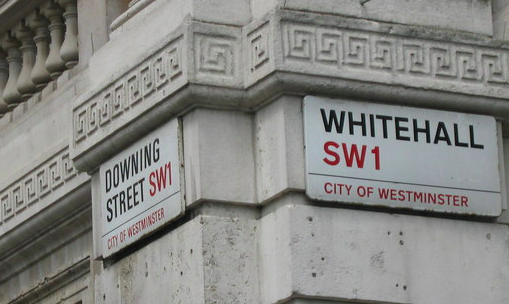UK gambling leadership will be evaluating DCMS’ ‘policy document‘ which accompanied the launch of the government’s review of the 2005 Gambling Act.
Addressing the House of Commons, Nigel Huddleston, DCMS Minister for Sport, underlined that his department would take no knee-jerk response in its duties to review UK gambling: “We will listen and gather the evidence required to govern gambling for the next 10 years, and beyond,” he said.
Grabbing national headlines, the department promised to raise the minimum age for National Lottery ticket and game purchases to 18. This was announced alongside the government’s planned review of a blanket ban on advertising and the enforcement of drastic online casino stake reductions which mirror 2019’s FOBTs cut.
However, bringing clarity to proceedings, the publishing of DCMS’ policy document indicates that the government will undertake a surgical re-wiring of UK gambling and its relationship with all business sectors, local communities and policy agencies.
In Commons, Huddleston gave a rundown on DCMS’ critical remit of striking the right balance in governing an industry in which ‘47% of UK adults had taken part in at least one form of gambling in the previous four weeks’.
DCMS underlined gambling’s significant contribution to the economy – an industry which ‘employs nearly 100,000 people, paying approximately £3 billion per year to the government in taxes, and accounting for £8.7bn or 0.5% of UK Gross Value Added (GVA)’.
Echoing the assessment taken by the House of Lords Select Committee of ‘gambling’s social and economic harms’, DCMS stated that an urgent re-balancing is required given the dire public outcomes of problem gambling, citing instances of family debt, criminality, mental health and physical abuse.
2021 is marked as the optimal time to carry out its review, as DCMS said that gambling has completed its ‘channel shift’ from land-based gambling to online verticals.
September 2019 marked the first time in which sector GGY generated by remote operators overtook that of land-based gambling (excluding lotteries).
Furthermore, DCMS marked the NHS as a critical stakeholder in its assessment, as the health service plans to open 15 new specialist clinics to expand nationwide support for vulnerable patients experiencing all levels of gambling-related harms.
DCMS acknowledged the betting sector’s commitment to help the NHS, with the UK’s biggest operators contributing a combined £100 million to help fund problem gambling treatment and research over the next four years.
Despite UK betting acting on the front foot to tackle its conduct and responsibility duties, DCMS reiterated that greater scope and controls are required across the UK business spectrum to govern gambling in its digital age.
The DCMS review will take on a holistic view to assess the evidence on the current effectiveness of the existing online protections – as customer care duties, with regards to player interventions and affordability checks, have been placed at the forefront of DCMS’ agenda.
Further technical concerns have been pin-pointed with regards to safeguarding operators’ mandatory duty to refer players to the GAMSTOP self-exclusion scheme with the aim of making player protection water-tight across all gambling verticals.
Reviewing technical standards, DCMS seeks evidence on the structure of ‘white label’ partnership agreements, which has raised significant concerns following multiple penalties issued to software suppliers serving as the licence holder of brands operated by third parties.
Of heightened significance, DCMS’ review will feature the first critical analysis of UK gambling’s ‘consumer redress’ – governing consumer disputes, complaints and rights when interacting with licensed operators.
The Gambling’s industry-changing product spectrum will also be evaluated by the review, in which DCMS will compose the first legislative framework governing loot boxes and in-play gaming purchases – an area in which the department will launch a stakeholder consultation following the findings from a Select Committee examining ‘Immersive and Addictive Technologies’.
Earmarked as a key area of its review, DCMS has stated that it will require a diverse input on what factors should be considered when judging the unique circumstances related to a consumer redress for gambling – with factors such as player disputes, market cancellations, player caps and appropriate compensation expected to be reviewed.
DCMS highlighted that it has taken on board the recommendations made by the National Audit Office and Public Accounts Committee to improve the UKGC’s evaluation of regulatory outcomes, helping the agency to capitalise on available data and intelligence for monitoring licensed operators.
A revaluation of the UKGC will be carried out, with DCMS expected to observe whether changes to UK gambling laws and governance would lead to significant or emerging black market threats.
In its conclusion, DCMS reaffirmed its confidence in delivering a satisfactory review of UK gambling in 2021, an outcome welcomed by all gambling leaders. However, betting leadership has been warned that gambling conduct will be in the public spotlight come next year.









